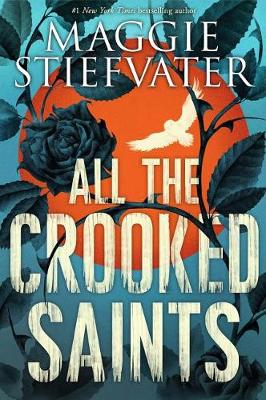Reviewed by rohshey on
Before I say anything I just want to get it out there. The Writing, people. The Writing! It. Is. Glorious.
You know how sometimes you come across a book that makes you feel the respect and love the writer has for the language as it seems like every word has been picked very carefully and delicately by the writer and weaved into lush of sentences that take your breath away or leave you with a blushing smile after every turn of a page. This is that book. And I am not talking about the kind of writers who come across pretentious in the name of elegant/poetic writing. There's difference between using language as a tool to show off the writer's command over language hence letting the story take the backseat and using it as genuine mean to bring out the nuance in storytelling by applying simplest of words hence allowing the story to be the hero. All the crooked saints magnificently falls into the latter category. There's special corner in my heart for writers who show care for the importance of language in storytelling and Maggie Steifvatar, I welcome you to that special corner in my heart.
Now comes the actual critique of the story, so It’s a whimsical story in its darkness and light, but for me it was read from a distance. Even though I felt the urge to applaud Stiefvater for her facility and love of language. Some of her sentences would just stop me in my tracks. ‘Pete was from Oklahoma and had only loneliness as his second language’just works for me on so many levels. It was the overall narrative that just lost me at times. I just didn’t feel invested in anything. But that’s the trouble with fairy tales, isn’t it? At times, they just feel detached even when you are absorbed in the writing.
While this novel wasn’t for me, it was an interesting read. It’s unlike anything I had previously read, and it was a unique ride.
Reading updates
- Started reading
- 2 November, 2017: Finished reading
- 2 November, 2017: Reviewed
